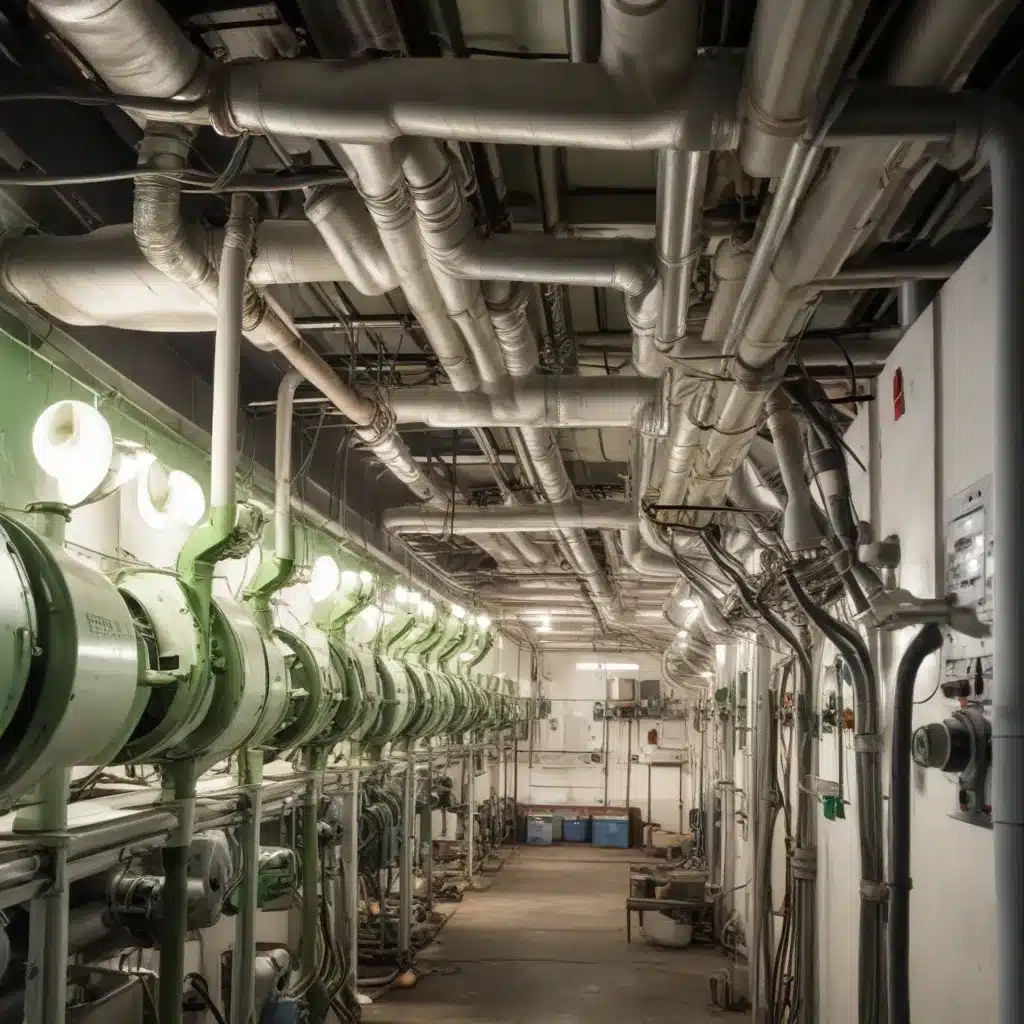
Strategies for Improving Energy Efficiency in the Service Sector
As Europe embarks on its ambitious journey to a clean energy future, the service sector—which encompasses a wide range of industries, from hospitality and healthcare to finance and information technology—plays a crucial role in driving sustainable transformation. This sector, long overshadowed by the energy-intensive manufacturing and transportation industries, is now emerging as a key battleground in the fight against climate change.
Understanding the Service Sector’s Energy Landscape
The service sector is often perceived as a relatively low-energy-consuming industry, but a closer look reveals a more complex reality. While individual service businesses may have a smaller energy footprint compared to heavy industries, the sheer size and diversity of the service sector make it a significant contributor to Europe’s overall energy consumption and greenhouse gas emissions. Office buildings, data centers, hotels, and retail establishments all require substantial amounts of energy for lighting, heating, cooling, and powering a myriad of electronic devices and equipment.
Recognizing the untapped potential for energy savings in the service sector, policymakers and industry leaders are now turning their attention to unlocking the power of energy efficiency. By implementing innovative strategies and leveraging the latest technological advancements, service-based businesses can not only reduce their environmental impact but also reap the financial benefits of lower operating costs and enhanced competitiveness.
Evaluating Energy Consumption Patterns
The first step towards improving energy efficiency in the service sector is to understand the nuances of energy consumption within individual businesses and across the industry as a whole. Comprehensive energy audits, facilitated by energy benchmarking and data analytics, provide a granular understanding of energy usage patterns, identifying the key drivers of consumption and pinpointing areas for potential optimization.
These insights inform the development of targeted strategies to address the specific energy needs of different service sector sub-industries. For example, the energy footprint of a data center may differ significantly from that of a hotel or a retail outlet, each requiring tailored solutions to enhance efficiency.
Technological Advancements for Energy Efficiency
The service sector is poised to capitalize on a wealth of emerging technologies that can dramatically improve energy efficiency. Building automation systems, smart meters, and intelligent energy management platforms enable real-time monitoring, optimization, and control of energy-consuming assets, from HVAC systems to lighting and appliances.
The integration of renewable energy sources, such as solar photovoltaic and onshore wind, further empowers service-based businesses to generate their own clean energy, reducing reliance on the grid and insulating themselves from volatile energy prices. Energy storage solutions, including battery storage and thermal storage, complement these renewable energy systems, enabling businesses to better manage their energy supply and demand.
Beyond the built environment, the service sector is also embracing technological innovations that drive energy efficiency within their core operations. Artificial intelligence and machine learning algorithms are being leveraged to optimize scheduling, logistics, and resource allocation, leading to significant energy savings across the value chain.
Optimizing Facility Management
Effective facility management is a cornerstone of energy efficiency in the service sector. By implementing robust energy management systems and preventive maintenance programs, businesses can ensure that their buildings and equipment operate at peak efficiency, minimizing energy waste and extending the lifespan of critical assets.
Strategies such as retro-commissioning, which involves the systematic evaluation and optimization of a building’s systems and controls, can yield substantial energy savings without the need for major capital investments. Similarly, energy-efficient retrofits, ranging from LED lighting upgrades to HVAC system enhancements, can dramatically improve a facility’s energy performance.
Implementing Energy-Efficient Practices
Beyond technological solutions, the service sector can achieve significant energy savings through the adoption of energy-efficient operational practices. This includes initiatives such as power management for electronic devices, optimized scheduling of equipment and occupancy-based lighting and HVAC controls.
Engaging employees in the energy efficiency journey is also crucial. By fostering a culture of sustainability and providing comprehensive energy awareness training, service-based businesses can empower their workforce to become active participants in driving energy-saving behaviors, from turning off lights and computers to optimizing resource usage.
Renewable Energy Integration
As the service sector increasingly embraces renewable energy sources, the integration of solar power, wind power, and hybrid energy systems has become a strategic priority. Power Purchase Agreements (PPAs) and virtual power purchase agreements enable service-based businesses to access renewable energy without the need for direct investment in on-site generation.
The rise of community solar and shared renewable energy programs further expand the options for service-sector organizations to participate in the renewable energy revolution, even in situations where on-site generation may not be feasible.
Leveraging Energy Monitoring and Analytics
Data-driven approaches are transforming the way the service sector manages energy consumption. Advanced metering infrastructure, coupled with energy analytics software, provides real-time insights into energy usage patterns, allowing businesses to identify and address inefficiencies with surgical precision.
Predictive maintenance strategies, enabled by machine learning and Internet of Things (IoT) technologies, further enhance energy efficiency by anticipating equipment failures and proactively scheduling maintenance, thereby minimizing downtime and energy-intensive repairs.
The integration of automation and smart technologies into building systems and operations streamlines energy management, reducing the burden on facility managers and empowering them to make more informed, data-driven decisions.
The service sector’s journey towards greater energy efficiency is a multifaceted endeavor, requiring a comprehensive approach that combines technological innovations, operational excellence, and a deep commitment to sustainability. By embracing these strategies, service-based businesses in Europe can not only reduce their environmental footprint but also enhance their competitiveness, resilience, and financial performance. As the continent accelerates its transition to a clean energy future, the service sector emerges as a critical player in realizing this ambitious vision.






